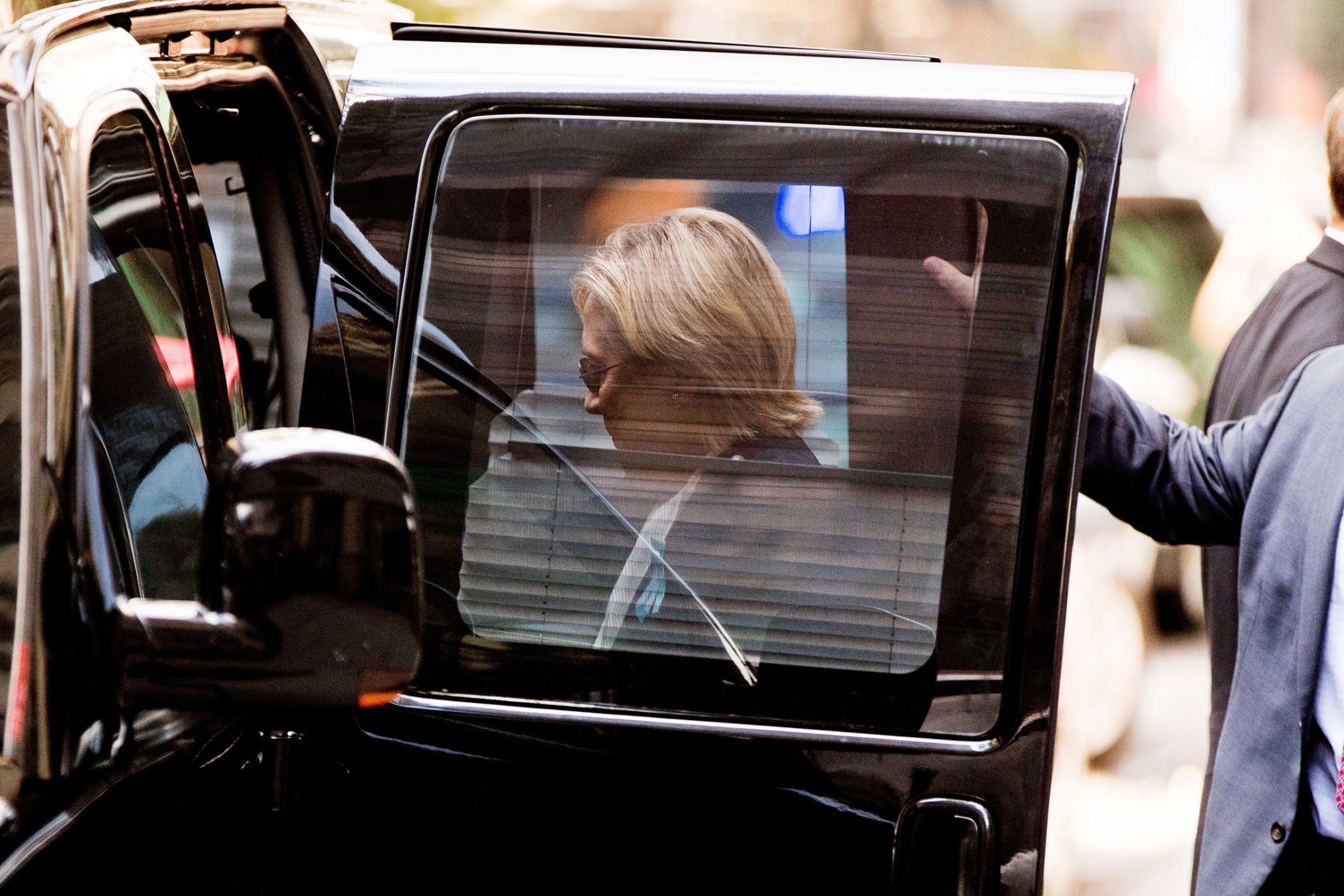
When she reappeared on a New York City sidewalk, Hillary Clinton was all smiles for the network cameras staked out around her daughter’s home. She wanted to replace the images from a cell-phone video that had circulated hours earlier, showing her being helped into a van, overcome by heat and dehydration, during a Sept. 11 memorial service. “I’m feeling great,” she told the cameras. Then she said it again, two more times.
Maybe she was. She certainly looked better. But when she spoke those words, her diagnosis of pneumonia, delivered with an antibiotic prescription two days earlier, was still undisclosed. Her decision to take the next three days off to rest had yet to be announced. Those three words–I’m feeling great–turned out to conceal more than they revealed.
The illness was a minor one, a bug common to people who live in planes and greet hundreds of strangers a day. But her misleading comments revealed both Clinton’s instincts and why the public has trouble trusting her. Pollsters long ago found an overwhelming–and ironic–disconnect between the American people and the two candidates elected to lead their respective parties. More than 6 in 10 voters say Clinton and Donald Trump are each not “honest and trustworthy,” with him often scoring worse than her.
That kind of distrust runs both ways, and then it feeds upon itself. The candidates, pushed to live in a glass house of constant scrutiny, have become unusually wary of revealing themselves this year. Trump has taken to banning news outlets that report on parts of his world he does not like to see aired and forcing his employees to sign nondisclosure agreements. He refuses to take the most basic step of releasing his tax returns, which would give the country more detail on his income and charitable donations if not his foreign business partners. And he has refused for months to provide rudimentary medical information, beyond a hyperbolic letter from his eccentric doctor.
When called out for his equivocations, Trump tends to give no ground, arguing to this day that he opposed the Iraq invasion before the war, when he did not. Subterfuge, it seems, can be a Trumpian instinct: in May, he denied ever using aliases like John Barron when talking on the phone, even though he admitted to doing just that under oath in a 1990 deposition. For the falsehoods and smears he has promoted throughout the campaign–like the whoppers that Muslims in New Jersey celebrated terrorism en masse and that blacks are responsible for 81% of white murders–there is no apology to be found.
There is, of course, a method to Trump’s approach, honed through a business career made by pumping up the value of condos, steaks and vodka. “When you are making a public statement, you want to say it the most positive way possible,” he once argued in another deposition. “I’m no different from a politician running for office.”
Clinton’s caution is rooted as much in restoring a long-wounded privacy as any mass-marketing campaign. She distrusts both the calls for more information and the way that information will be handled in public. “I have a lot of faith in the American people,” President Obama likes to say. Clinton too often seems to begin with the opposite assumption, wary of doing anything that would allow the outlandish conspiracy theories peddled by her enemies to gain traction. After her sidewalk declarations, her campaign admitted making mistakes in its handling of the health information and promised more details. Some Democrats, meanwhile, went public with their concern. “What’s the cure for an unhealthy penchant for privacy that repeatedly creates unnecessary problems?” tweeted David Axelrod, Obama’s former campaign strategist.
Axelrod was talking about the political damage Clinton has done to herself. But that is not all that is hurt by candidate secrecy. No part of American society has escaped the civil furies of the past 15 years, with public trust in fundamental institutions, from the courts to the media to organized religion, all declining. It’s a distrust that breeds defensiveness, yielding further distrust. And unless we collectively choose to believe in each other again, it will only get worse. □
More Must-Reads from TIME
- Donald Trump Is TIME's 2024 Person of the Year
- Why We Chose Trump as Person of the Year
- Is Intermittent Fasting Good or Bad for You?
- The 100 Must-Read Books of 2024
- The 20 Best Christmas TV Episodes
- Column: If Optimism Feels Ridiculous Now, Try Hope
- The Future of Climate Action Is Trade Policy
- Merle Bombardieri Is Helping People Make the Baby Decision
Contact us at letters@time.com